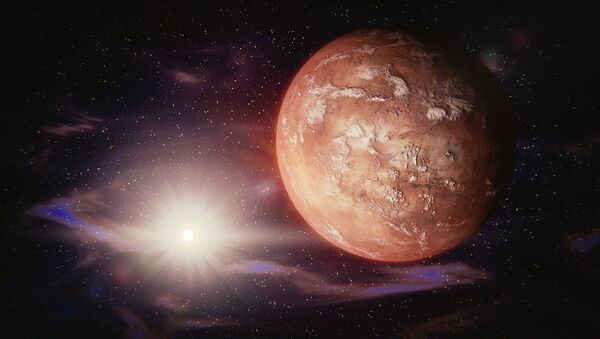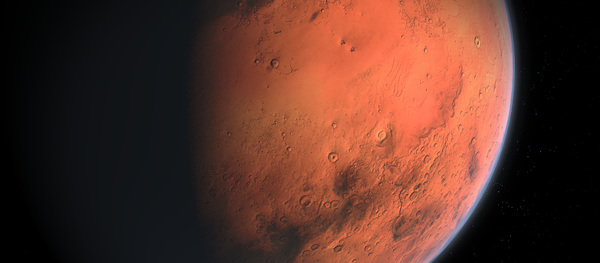Sputnik: What is your theory on the origins of methane on Mars? What could its possible sources be?
Hakan Svedhem: It’s really a puzzle, we have seen in the case from previous missions that there may be small amounts of methane on Mars; indeed, much less than on the Earth. At the moment, we don’t know where it comes from, and we don’t know really how it is distributed over the planet, and why it seems to be changing with time. It could potential he be generated by geological processes underground but it could also be generated by biological activity just like on the Earth.
Sputnik: So you’re saying that you don’t exactly know whether it's biological or geological, if it’s a living organism, for example, that's emanating the gas, what could these organisms be? Are we talking about primitive life forms or could there be something more complex, do you feel?
Hakan Svedhem: It’s most likely very primitive like microbes or so on, and they need to be underground because if they would be on the surface on the planet they would actually have been sterilized already long ago, we have very strong ultraviolet radiation on the surface but we also have cosmic radiation that would kill all the life on the surface, we cannot imagine any higher life forms walking around on the surface, it’s most likely something underground if it would be biological.
Sputnik: What conditions are necessary to sustain life on the planet Mars, perhaps, you can give us a little bit more detail on that?
Sputnik: In case the gas is purely geological in its nature would that still matter for science and astronomy: if so, why is that?
Sputnik: What’s your feeling then about terraforming of Mars? There’s been obviously lots of conversation in the recent past with regard to being able to cultivate life on Mars for human beings to live there, is that something that you believe will happen one day? What’s your take on that?
Hakan Svedhem: Yes, one day possibly. It's, of course, extremely complicated to do this and for sure the first humans that would arrive at Mars would have to be living in their protective little bubble, but if you really want to terraform Mars it’s a huge project, it has to be done with some smart engineering, and it will probably take hundreds, maybe thousands of years to come to a situation where Mars would look anything like the Earth.
The views and opinions expressed in this article are solely those of the speaker and do not necessarily reflect those of Sputnik.






